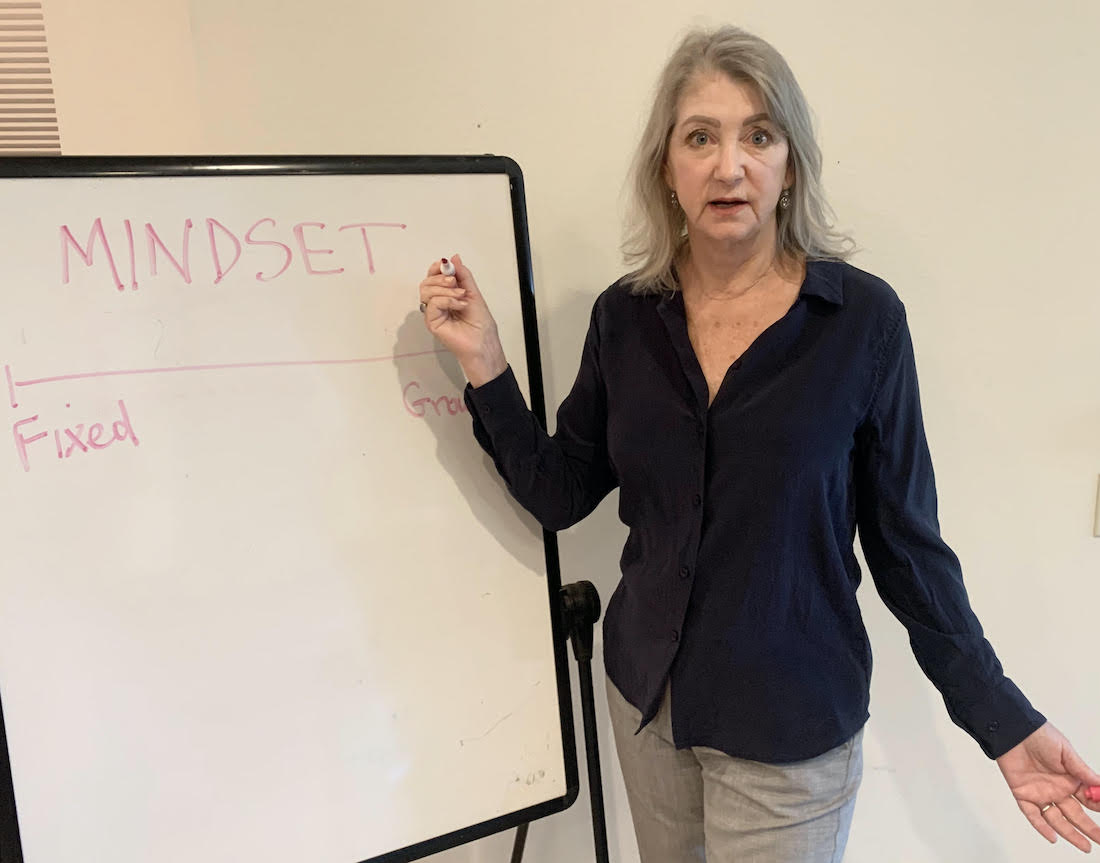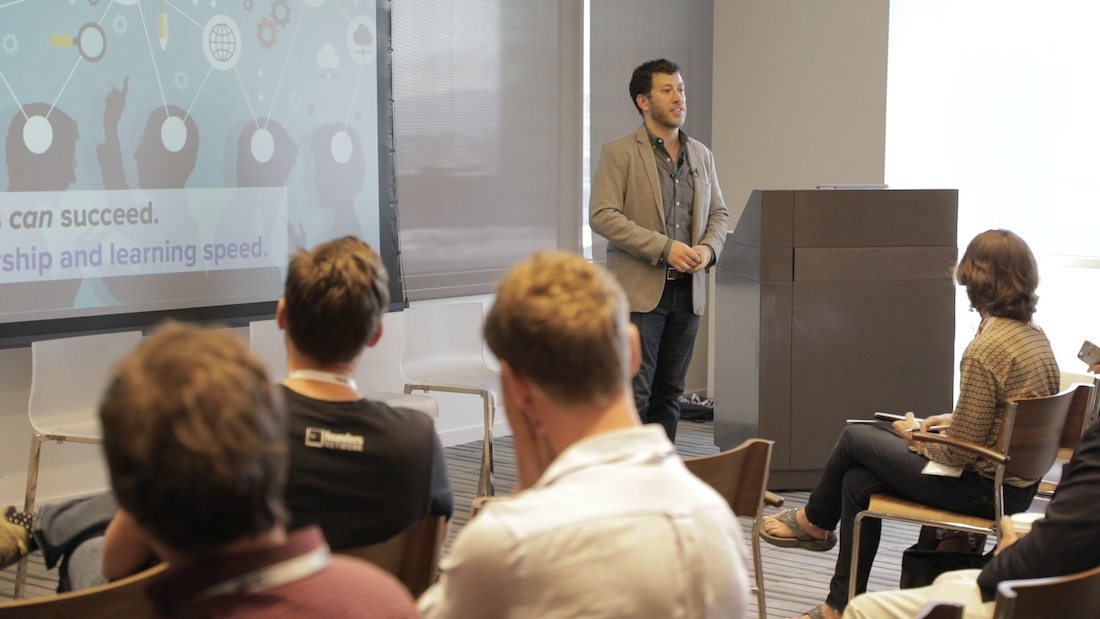
Successful entrepreneurs share a few common straits: Optimism, open-mindedness, and collaboration, among others. Anne Sandberg, an organizational development coach and Chief Learning Officer at the Center for Growth Leadership, explains how to build a ‘growth mindset’, how to draw it out of your team, and how your mindset gives your startup a competitive edge.
Successful founders tend to share some characteristics in common. Those traits boil down to having a “growth mindset,” and while they may come more naturally to some than others, there are ways to cultivate that frame of mind in yourself and others.
“A growth mindset is a way of looking at the world that’s highly optimistic and learning-centered, and it’s fundamental for entrepreneurs,” says Anne Sandberg, an organizational development expert and Chief Learning Officer at Center for Growth Leadership. Using scientific assessments, the Center for Growth Leadership works with leaders to optimize people and process, spanning everything from hiring and talent development to management.
“A growth mindset is essential for entrepreneurs,” says Anne, and gives your startup a competitive advantage. In a Founders Network session, she walks founders through a mindset assessment and gives advice on how to identify and nurture growth-focused thinking.
Register to Anne’s full webinar and see if you qualify for full membership here at Founders Network and get insights on:
- Assessing and Measuring Growth Traits
- Breaking Bad Habits and Building New Ones
- Seeking Opposing Views to Promote Collaboration
- Focusing on Upside to Reframe Behaviors
- Identifying Growth Traits in Candidates
“The growth mindset serves as a “frame of reference,” and encourages growth in several areas of launching and running a startup,” Anne adds. “Key traits include open-mindedness, a knack for self-improvement, good analytical skills, and some appetite for risk.”
“Self-improvement is key: To what extent are you motivated to learn, grow, study, and incorporate new perspectives?” she says. “Seeing the future as positive, and looking for upside, is another trait that underpins the growth mindset.”
With the right mindset, startup founders — who can make dozens of consequential decisions over the course of a week — can make well-rounded choices with a high degree of confidence. What’s more, they can bring others into the process, getting team members on board with their decision-making through a focus on collaboration.
“Self-improvement is key: To what extent are you motivated to learn, grow, study, and incorporate new perspectives?” - @ReadyToManage Share on X“If you can see the upside in any situation, you can reframe the way you tend to behave and practice specific behaviors that bring you closer to a growth mindset,” Anne explains. “Behaviors are just like any habit: Breaking a habit or making new ones is hard, but it’s possible.”
For founders undertaking what could be a years-long project, taking an assessment can lay the groundwork for a growth mindset. One can find out where they rank across key traits, and make a plan for adjusting behaviors and ways of thinking where needed.
“If you ask the right questions, people will start to see you as truly interested in their opinion,” she adds.
“Behaviors are just like any habit: Breaking a habit or making new ones is hard, but it's possible.” - @ReadyToManage Share on XThose interactions can carry major implications for your startup, the culture you build, and how well you retain talent. Hiring and talent retention is consistently cited by managers as the top issue facing their companies, and the stakes are high: McKinsey estimates that top talent are up to 400% more productive than their peers.
Just like measuring your own growth mindset, there are techniques to suss it out in new hires. Asking strategic questions, in an effort to learn the presence of productive traits and behaviors, is critical.
“Ask candidates for specific examples of when they’ve solicited viewpoints, or gotten into brainstorms, with people who have an opposing view,” Anne says. “You might decide to hire the person anyway, and now you understand where they’ll be ready to go, and where you need to coach them.”






